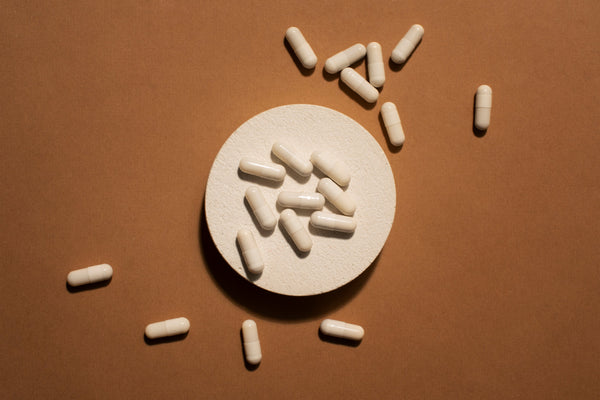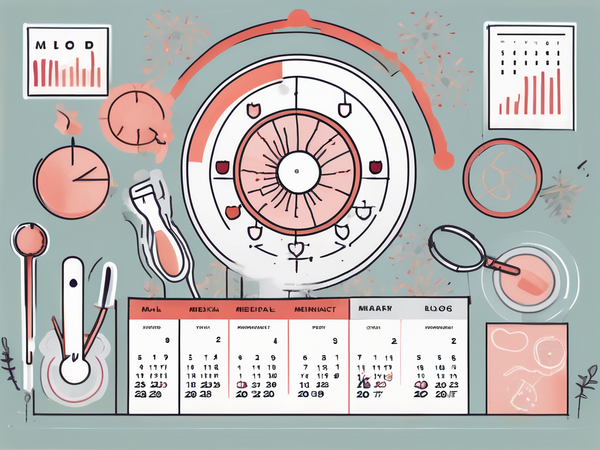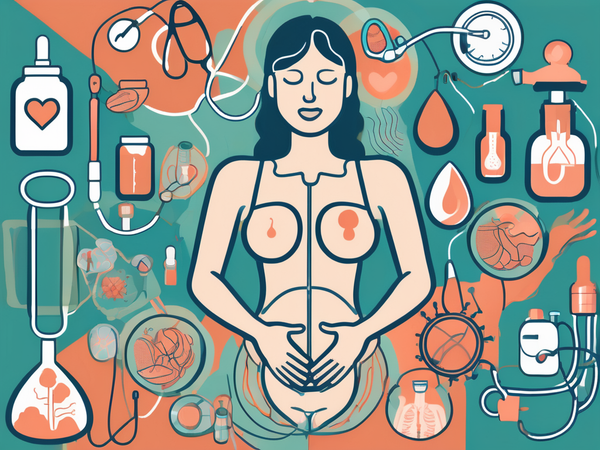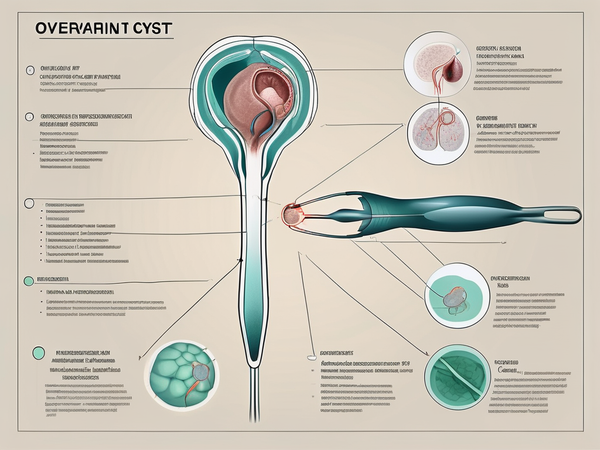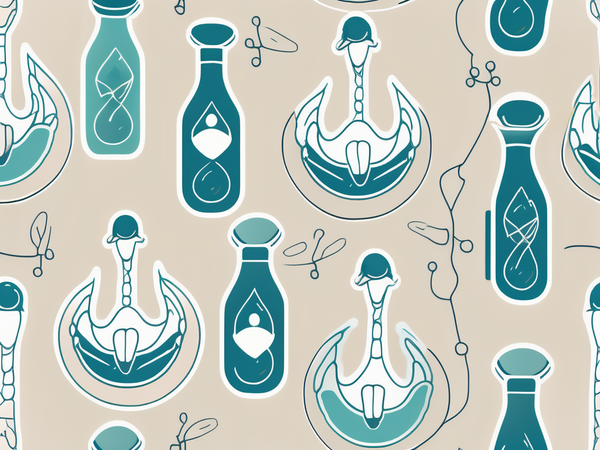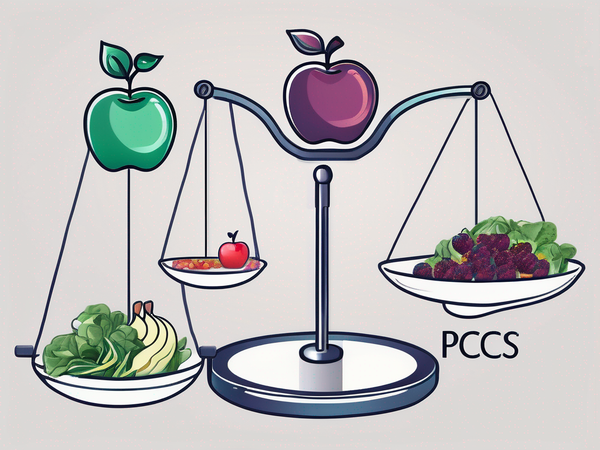Every woman will agree that menstruation is a demanding time of the month. And when combined with PMS symptoms, they're quite difficult to manage. PMS refers to the discomfort women face before or during their period, which includes anxiety, cramps, mood swings, loss of appetite, or excessive cravings. While for some the symptoms are manageable, for others, the pain and discomfort are immense. If you’re a woman looking for natural supplements to fight and deal with PMS or looking for an effective pain relief remedy, this blog is for you. Scroll down and learn more about this monthly anti-hero and how you can tackle it.
What is PMS?
PMS, or Premenstrual Syndrome, is a combination of symptoms that women experience before and during their period. The effects of PMS can be physical or psychological. For some women, these symptoms can be pretty severe and unbearable, while others may not experience much discomfort. While the changes come 1 or 2 weeks before your cycle is supposed to start, these symptoms, however, subside when your period starts or two or three days after your period begins. Unfortunately, doctors still don’t know the exact reason why this happens, but the general conclusion is because of the changes that happen in your body chemistry around this time of the month.
Physical symptoms of PMS include: -
● Fatigue
● Oily skin
● Headache
● Diarrhea
● Weight gain
● Constipation
● Change in appetite
● Bloating
● Muscle ache
Psychological Symptoms include: -
● Depression
● Mood swings
● Social withdrawal
● Irritability
● Crying
● Anxiety
While most women have to deal with PMS, these symptoms are more common with those who:
- Are in their late 20s to early 40s.
- Have had a child.
- Are dealing with postpartum depression
- Are dealing with depression or bipolar disorder.
Supplements To Make PMS Bearable

1. Iron and Folic Acid Supplements
Women who do not consume enough Iron as a part of their diet may experience reduced Hemoglobin and ferritin levels. When it comes to PMS, it can lead to vomiting, fatigue, nausea, or anemia. It can also cause period cramps and heavy bleeding during the menstrual cycle. Research also suggests that iron for women plays an important role in boosting serotonin levels during PMS.
To manage the symptoms effectively, a daily diet rich in Iron is a must. Iron supplements are also highly recommended for women who suffer from heavy bleeding during their menstrual period.
While you can improve Iron levels in the body from the foods you eat, according to research, not all forms of dietary Iron are the same when it comes to PMS. The Iron found in either plant-based foods or supplements is known to have a more positive effect on PMS symptoms.
Heavy menstrual bleeding leads to loss of Iron in the body, which can lead to deficiencies like anemia. Here’s where Folic acid helps. It assists the growth, efficiency, and maintenance of the red blood cells that supply Iron throughout the body. That is why it is best to opt for supplements that contain both these ingredients.
2. Suntheanine And Magnesium Supplements
Stress and anxiety are very common symptoms of PMS due to the hormonal rollercoaster. This affects the neurotransmitters in your brain, such as serotonin and dopamine, which are associated with mood regulation, leading to issues like anxiety, depression, and mood swings. It's also common to suffer from a lack of sleep or insomnia during this time of the month. Women tend to suffer more sleep disturbances than men, especially during PMS or PMDD (Pre-menstrual Dysphoric disorder, an extreme kind of PMS), menstruation, post-menopausal, and pregnancy phases. While the benefits of chamomile are widely known when it comes to treating these issues, 2 other ingredients are equally beneficial -- Suntheanine And Magnesium!
Suntheanine is a purified potent form of L-theanine which has mood-stabilizing effects. It also helps promote the production of alpha brain waves, reduce anxiety and make you feel calm.
Women dealing with PMS may also have low levels of magnesium which is responsible for bloating, fatigue, irritability, soreness, and sleep disturbance. Magnesium also plays a vital role in mood stabilization as it’s essential for the brain's dopamine synthesis. To increase magnesium levels in the body, opt for foods like almonds, green leafy vegetables, peanuts, etc.
While both these ingredients individually, have their own benefits, combining them both is highly effective in treating PMS symptoms. Suntheanine and Magnesium supplements not only help regulate mood and provide pain relief but also improve sleep quality and alleviate painful cramps.
3. Matcha Green Tea
Matcha green tea is highly beneficial in treating fatigue, cramps, and body aches during PMS and periods. It is one of the best drinks for women during their menstrual cycle. Matcha Japanese green tea is rich in antioxidants and provides several benefits during PMS: -
● Eases period cramps – It is a great pain relief remedy. Matcha green tea consists of L-theanine, an amino acid that relaxes your muscles and blood vessels during menstruation, easing your cramps.
● Boosts energy – The presence of L-theanine in Matcha green tea will increase your energy and reduce your stress levels. Coffee may be your go-to comfort drink during PMS but it might do you more harm than good. Coffee can make you feel dehydrated and worsen sleeplessness which is common during menstruation. Instead, you can opt for Matcha green tea, which provides you with the same benefits as coffee minus the jitters.
● Improves mood - Menstruation can often impact your mood because of fluctuating levels of estrogen, testosterone, and progesterone. While matcha may not turn you into the cheerful and excessively energetic girl you may see in the commercials, it can, however, increase serotonin and dopamine production. These are the feel-good hormones and will help reduce grouchiness.
4. B - Complex Supplements
B vitamins, a group of water-soluble vitamins, are extremely helpful in dealing with PMS symptoms. Since these vitamins are water-soluble and cannot be stored in the body, taking supplements can help you meet your daily requirements and treat your PMS symptoms altogether. Here's how these vitamins help you during PMS and menstruation: -
● Vitamin B1 (Thiamine) – Thiamine is involved in neuromuscular and central nervous system activities. Therefore, it helps deal with the uterus's muscular contractions, also known as cramps.
● Vitamin B2 (Riboflavin) – B2 vitamin helps with energy production.
● Vitamin B6 (Pyridoxine) – B6 helps in the production of serotonin, the mood-improving hormone.
● Vitamin B9 (Folate) – Folate stimulates energy production. It also releases dopamine and serotonin, thus regulating mood.
● Vitamin B12 (Cobalamin) – B12 helps make blood cells, which is critical for replenishing blood during the time of heavy flow.
It is always better to opt for a multivitamin for women consisting of these B vitamins and other beneficial vitamins and minerals that will benefit you altogether.
Wrapping Up
For many people, PMS can be hard to deal with. But with the right supplements, women can effectively handle the physical and emotional symptoms.
However, always remember that certain supplements can interact with other medications. Therefore, it is better to consult your healthcare advisor or doctor before taking a supplement. Also, if the PMS symptoms worsen with time and become hard to deal with even after taking the supplements, it is always better to take medical guidance.
References
● Knovich MA, Storey JA, Coffman LG, Torti SV, Torti FM. Ferritin for the clinician. Blood Rev. 2009 May;23(3):95-104. doi: 10.1016/j.blre.2008.08.001. Epub 2008 Oct 2. PMID: 18835072; PMCID: PMC2717717. https://www.ncbi.nlm.nih.gov/pmc/articles/PMC2717717/
● Merrell BJ, McMurry JP. Folic Acid. [Updated 2022 Nov 4]. In: StatPearls [Internet]. Treasure Island (FL): StatPearls Publishing; 2022 Jan-. Available from: https://www.ncbi.nlm.nih.gov/books/NBK554487/
● Kochman J, Jakubczyk K, Antoniewicz J, Mruk H, Janda K. Health Benefits and Chemical Composition of Matcha Green Tea: A Review. Molecules. 2020 Dec 27;26(1):85. doi: 10.3390/molecules26010085. PMID: 33375458; PMCID: PMC7796401. https://www.ncbi.nlm.nih.gov/pmc/articles/PMC7796401/
● Abdollahifard S, Rahmanian Koshkaki A, Moazamiyanfar R. The effects of vitamin B1 on ameliorating the premenstrual syndrome symptoms. Glob J Health Sci. 2014 Jul 29;6(6):144-53. doi: 10.5539/gjhs.v6n6p144. PMID: 25363099; PMCID: PMC4825494. https://www.ncbi.nlm.nih.gov/pmc/articles/PMC4825494/
● Mahabadi N, Bhusal A, Banks SW. Riboflavin Deficiency. [Updated 2022 Jul 18]. In: StatPearls [Internet]. Treasure Island (FL): StatPearls Publishing; 2022 Jan-. Available from: https://www.ncbi.nlm.nih.gov/books/NBK470460/
● Al Amin ASM, Gupta V. Vitamin B12 (Cobalamin) [Updated 2022 Jun 21]. In: StatPearls [Internet]. Treasure Island (FL): StatPearls Publishing; 2022 Jan-. Available from: https://www.ncbi.nlm.nih.gov/books/NBK559132/













